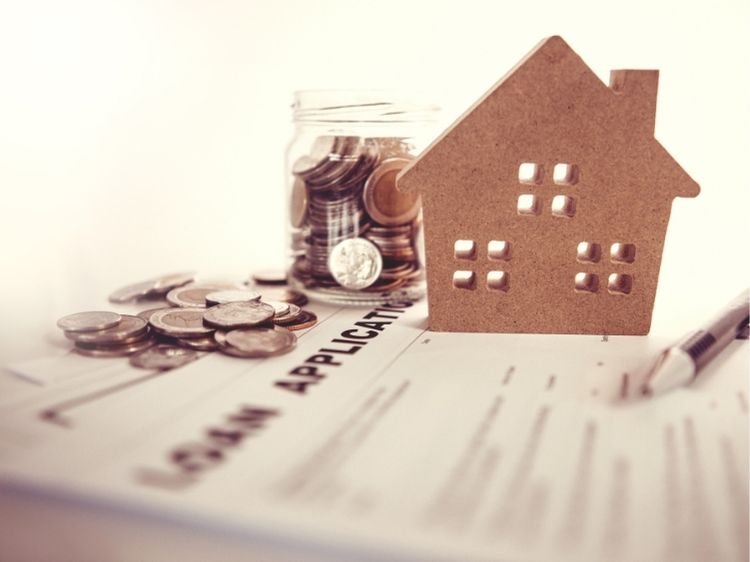When it comes to buying a home, navigating the maze of mortgage options can feel overwhelming. For many first-time buyers or those with lower credit scores, an FHA loan might just be the perfect fit. But what exactly is an FHA loan, and why is it such a popular choice among homebuyers? In this comprehensive guide, we’ll break down the ins and outs of FHA loans, from eligibility requirements to the application process, and everything in between. Whether you’re curious about its benefits or simply want to know if it’s right for you, we’ve got you covered!
What Is an FHA Loan?
An FHA loan is a mortgage insured by the Federal Housing Administration (FHA), a government agency under the U.S. Department of Housing and Urban Development (HUD). Unlike conventional loans, FHA loans are designed to help people with lower credit scores or limited down payment options get into a home. Essentially, the FHA provides lenders with a safety net, guaranteeing the loan in case the borrower defaults, which makes lenders more willing to extend credit to riskier applicants.
Key Features of FHA Loans:
- Lower Credit Score Requirements: You don’t need a perfect credit score to qualify for an FHA loan. While conventional loans often require scores of 620 or higher, FHA loans allow for scores as low as 500 (with a 10% down payment) or 580 (with a 3.5% down payment).
- Smaller Down Payments: One of the biggest draws of FHA loans is the low down payment. You can qualify with as little as 3.5% down, compared to the 20% some conventional loans require.
- Flexible Debt-to-Income Ratios: FHA loans are more forgiving when it comes to debt-to-income ratios, meaning if you have outstanding debts like student loans or credit cards, you may still qualify.
- Mortgage Insurance: FHA loans require two types of mortgage insurance premiums – an upfront premium and an annual premium, which is spread over monthly payments.
Why Choose an FHA Loan?
So, why should someone consider an FHA loan over other types of mortgages? Well, there are a few reasons why this type of loan could be the right choice:
- First-time Buyers’ Dream: If you’re a first-time buyer without a big nest egg saved up, FHA loans are a fantastic way to get your foot in the door without needing a massive down payment.
- Easier Approval Process: Since FHA loans are backed by the government, lenders are more likely to approve applicants who might not meet the strict guidelines of conventional loans.
- Competitive Interest Rates: FHA loans often come with lower interest rates compared to conventional loans, which could save you money in the long run.
Eligibility Requirements
To qualify for an FHA loan, you’ll need to meet certain criteria, but don’t worry—these requirements are generally more lenient than conventional mortgages.
1. Credit Score
As mentioned earlier, a credit score of at least 580 is required for a 3.5% down payment, but even if your score falls between 500 and 579, you could still qualify with a 10% down payment. If your credit score is below 500, however, you might need to explore other loan options.
2. Down Payment
The FHA requires a minimum down payment of 3.5% of the home’s purchase price if your credit score is above 580. If it’s between 500 and 579, you’ll need to put down at least 10%.
3. Debt-to-Income Ratio
Your debt-to-income ratio, which compares your monthly debt payments to your monthly income, plays a key role in determining your eligibility. Generally, FHA loans require a ratio of 43% or less, though some lenders may be flexible if you have strong compensating factors.
4. Employment History
Lenders typically look for at least two years of steady employment or consistent income in the same line of work.
5. Primary Residence Requirement
FHA loans are only available for primary residences, so you must plan to live in the home you’re purchasing.
The FHA Loan Process: Step by Step
Getting an FHA loan follows a fairly straightforward process, but it’s important to know what to expect:
- Check Your Credit Score: Before applying, review your credit report to ensure your score meets the FHA loan requirements.
- Calculate Your Down Payment: Based on your credit score, determine how much money you’ll need for a down payment.
- Find a Lender: Look for a lender who offers FHA loans, and be sure to shop around for the best rates.
- Pre-Approval: Get pre-approved for a loan, which will give you an idea of how much you can borrow and show sellers that you’re a serious buyer.
- Complete the Application: Provide necessary documentation, such as your income, employment history, and credit information.
- Home Appraisal: FHA loans require an appraisal from an FHA-approved appraiser to ensure the home meets the minimum property standards.
- Close the Loan: Once everything checks out, you’ll close the loan, pay any required fees, and officially become a homeowner!
Pros and Cons of FHA Loans
Every type of mortgage comes with its own set of pros and cons, and FHA loans are no different. Here’s a quick breakdown to help you decide if this loan is right for you.
Pros:
- Low down payment (as little as 3.5%)
- Easier qualification standards for borrowers with lower credit scores
- Competitive interest rates
- Flexible debt-to-income ratios
Cons:
- Mandatory mortgage insurance (which can add to monthly payments)
- Property must meet FHA standards
- Limited to primary residences
Frequently Asked Questions (FAQs)
- Can I use an FHA loan for a second home? No, FHA loans are only available for primary residences. You must live in the home you’re financing.
- Do FHA loans have income limits? No, there are no income limits for FHA loans, but the loan amount must stay within the FHA’s lending limits, which vary by area.
- Can I refinance my FHA loan? Yes! You can refinance through the FHA Streamline Refinance program, which offers a simplified process with minimal documentation requirements.
- How long does it take to close an FHA loan? On average, closing an FHA loan takes about 30 to 45 days. However, this can vary based on the lender and other factors.
Conclusion: Is an FHA Loan Right for You?
At the end of the day, an FHA loan can be a fantastic option for first-time homebuyers, individuals with lower credit scores, or those who have less saved for a down payment. With its flexible eligibility criteria and government backing, it’s no wonder FHA loans are such a popular choice. However, it’s important to weigh the pros and cons, especially when it comes to mortgage insurance, and determine if it aligns with your financial goals.
If you’re ready to take the leap into homeownership, an FHA loan might just be the key to unlocking the door to your new home.
Authoritative Links:
- https://www.hud.gov/program_offices/housing/fhahistory
- https://www.fha.com/
- https://www.consumerfinance.gov/


